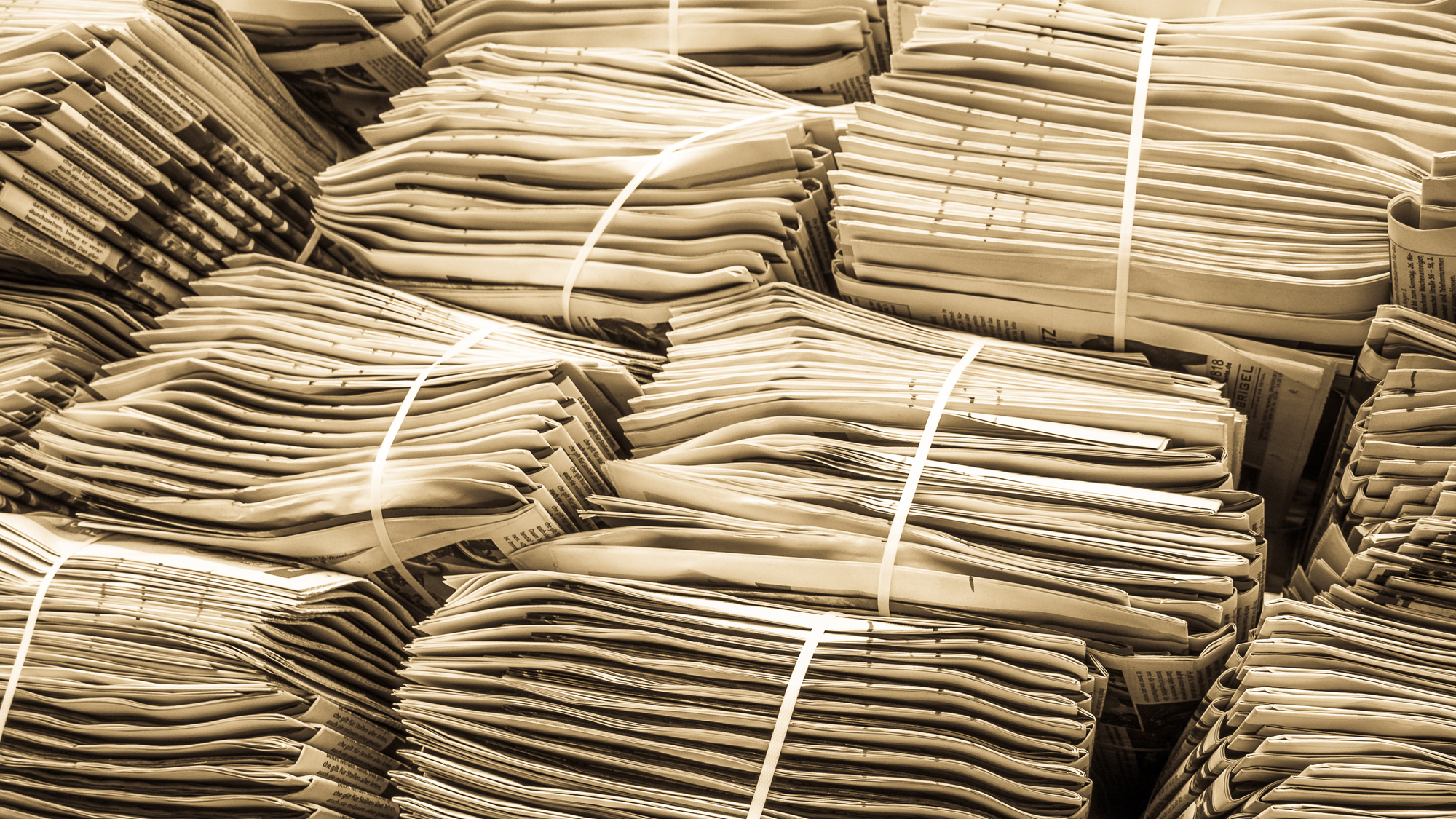When 'the narrative' is a lie
Not all sources of information are equal


A free daily email with the biggest news stories of the day – and the best features from TheWeek.com
You are now subscribed
Your newsletter sign-up was successful
In the early days of The Week, we splayed out a smorgasbord of daily newspapers on a long rectangular table in the center of the room. In addition to The New York Times, The Washington Post, and The Wall Street Journal, the staff sifted through the Miami Herald, Boston Globe, Philadelphia Inquirer, Chicago Tribune, Los Angeles Times, and several news magazines in our quest for tasty articles to curate for our readers. For a news junkie, the array of fine reporting, writing, and news presentation on that table was thrilling — tangible proof of the vital role journalism plays in our democracy. That was two decades ago, before Google, Facebook, and the internet laid waste to print newspapers and magazines. Now many of the websites that replaced them are also struggling and dying. As Elon Musk gloated last week, the implosion of "legacy media" is a boon for unfiltered, user-generated sources of information like his X, which "enables the people to define the narrative."
Ah, yes — "the narrative." How liberating to be freed from the fusty standards of evidence imposed by journalists, scientists, historians, and other obsolete sources of authority. The mainstream media, for example, would never have told you that Taylor Swift, Travis Kelce, the NFL, and the deep state are conspiring to deny Donald Trump a second term. That narrative may be easy to laugh off, but in the Disinformation Age, millions of citizens have adopted equally nonsensical beliefs about vaccines, election fraud, Jan. 6, climate change, gun violence, Ukraine, and the "Great Replacement" conspiracy — with much graver implications. Expertise, evidence, and nuanced perspective are out. Now you can get alternative facts and tribal dogma from simpleminded podcasters and TikTok influencers, rage-aholic cable TV hosts, and reactionary billionaires. Dead and dying newspapers aren't coming back, but we need to think more carefully and critically about what's replacing them.
This is the editor's letter in the current issue of The Week magazine.
The Week
Escape your echo chamber. Get the facts behind the news, plus analysis from multiple perspectives.

Sign up for The Week's Free Newsletters
From our morning news briefing to a weekly Good News Newsletter, get the best of The Week delivered directly to your inbox.
From our morning news briefing to a weekly Good News Newsletter, get the best of The Week delivered directly to your inbox.
A free daily email with the biggest news stories of the day – and the best features from TheWeek.com
William Falk is editor-in-chief of The Week, and has held that role since the magazine's first issue in 2001. He has previously been a reporter, columnist, and editor at the Gannett Westchester Newspapers and at Newsday, where he was part of two reporting teams that won Pulitzer Prizes.
-
 How the FCC’s ‘equal time’ rule works
How the FCC’s ‘equal time’ rule worksIn the Spotlight The law is at the heart of the Colbert-CBS conflict
-
 What is the endgame in the DHS shutdown?
What is the endgame in the DHS shutdown?Today’s Big Question Democrats want to rein in ICE’s immigration crackdown
-
 ‘Poor time management isn’t just an inconvenience’
‘Poor time management isn’t just an inconvenience’Instant Opinion Opinion, comment and editorials of the day
-
 How the FCC’s ‘equal time’ rule works
How the FCC’s ‘equal time’ rule worksIn the Spotlight The law is at the heart of the Colbert-CBS conflict
-
 Kurt Olsen: Trump’s ‘Stop the Steal’ lawyer playing a major White House role
Kurt Olsen: Trump’s ‘Stop the Steal’ lawyer playing a major White House roleIn the Spotlight Olsen reportedly has access to significant US intelligence
-
 Democrats push for ICE accountability
Democrats push for ICE accountabilityFeature U.S. citizens shot and violently detained by immigration agents testify at Capitol Hill hearing
-
 Fulton County: A dress rehearsal for election theft?
Fulton County: A dress rehearsal for election theft?Feature Director of National Intelligence Tulsi Gabbard is Trump's de facto ‘voter fraud’ czar
-
 ‘Melania’: A film about nothing
‘Melania’: A film about nothingFeature Not telling all
-
 Greenland: The lasting damage of Trump’s tantrum
Greenland: The lasting damage of Trump’s tantrumFeature His desire for Greenland has seemingly faded away
-
 Minneapolis: The power of a boy’s photo
Minneapolis: The power of a boy’s photoFeature An image of Liam Conejo Ramos being detained lit up social media
-
 The price of forgiveness
The price of forgivenessFeature Trump’s unprecedented use of pardons has turned clemency into a big business.
